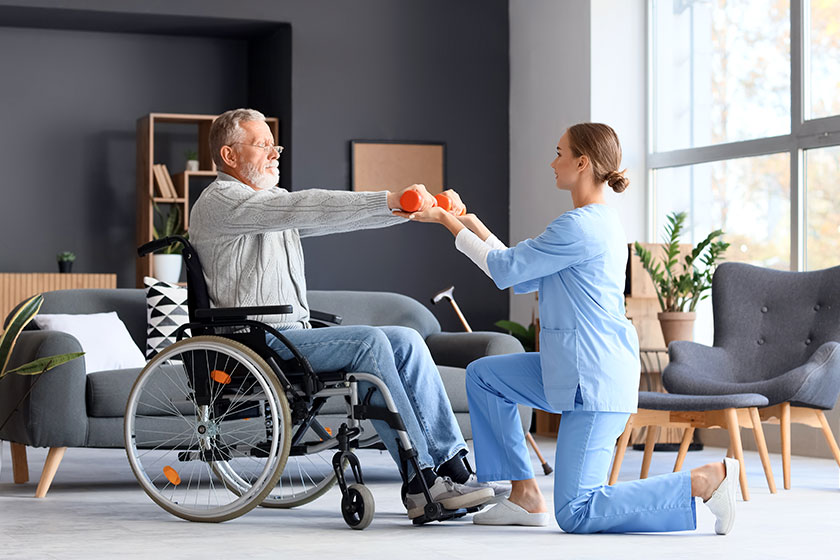Caring for individuals with physical disabilities involves much more than just meeting their basic needs. Assisted living care is designed to offer a balanced combination of personal assistance, medical support, and an environment that encourages independence. For residents with common physical disabilities, this approach helps improve their quality of life while fostering dignity and confidence.
Tailored Support for Mobility Issues
One of the most common physical disabilities in assisted living care involves mobility challenges, such as those caused by arthritis, spinal injuries, or conditions like multiple sclerosis. Assisted living facilities provide tailored solutions to help residents maintain as much mobility as possible. From physical therapy programs designed to enhance strength and balance to mobility aids such as walkers and wheelchairs, these facilities ensure that residents are not restricted by their physical limitations.
In addition to therapy and equipment, residents often benefit from architectural features such as ramps, wide doorways, and handrails, which make moving around the living space safer and more accessible.
Addressing Chronic Pain and Fatigue
Many physical disabilities come with chronic pain or fatigue, making daily tasks more difficult. Assisted living care takes these conditions into account by offering help with personal hygiene, dressing, and medication management. Trained caregivers ensure that residents don’t have to overexert themselves while maintaining a sense of independence in their daily lives.
Pain management programs are also a key part of care, with trained professionals available to administer medications or alternative treatments like massage therapy and relaxation techniques. This holistic approach helps residents manage their symptoms, improving both their physical comfort and mental well-being.
Supporting Residents with Sensory Impairments
Physical disabilities aren’t limited to mobility issues—sensory impairments like vision or hearing loss can greatly affect daily living. Assisted living care offers specialized support for residents with these challenges, such as arranging living spaces to be more accessible and safer for those with limited vision or providing visual alarms for those who are hard of hearing.
Staff in assisted living facilities are also trained to use communication tools that can help residents overcome sensory barriers, ensuring that they are fully included in social activities and day-to-day living. This level of care not only promotes safety but also encourages meaningful interactions, reducing feelings of isolation.
Promoting Emotional and Social Well-being
Living with a physical disability can often lead to feelings of frustration, isolation, and even depression. Assisted living care addresses this by offering emotional support and social engagement opportunities tailored to each resident’s abilities. Activities are adapted to ensure participation regardless of physical limitations, whether that involves wheelchair-friendly games, group outings, or accessible gardening spaces.
Moreover, the compassionate environment in assisted living care ensures that residents feel supported, not just physically, but emotionally. This holistic care model fosters a sense of belonging and boosts confidence, allowing residents to build relationships and stay engaged with the community around them.
Enhancing Independence and Quality of Life
Assisted living care is not about doing everything for residents—it’s about empowering them to do as much as they can while receiving the necessary support. By addressing both the physical and emotional aspects of care, assisted living facilities help residents with disabilities maintain their dignity and independence. The aim is to create an environment where residents can continue enjoying life to the fullest, despite their physical challenges.
Empowering Independent Living Every Day
Assisted living care offers a compassionate and comprehensive approach to managing physical disabilities, and our retirement community is designed to meet those needs. With tailored support systems, accessible living spaces, and engaging social activities, we empower residents to live safely, comfortably, and independently while enhancing their quality of life.
Our dedicated team focuses on both physical and emotional well-being, providing care that supports dignity and fosters a sense of belonging. Interested in how we can assist you or your loved one? Contact us today to learn more about our care options and amenities.







